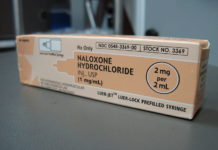Drug addiction treatment is a process of psychotherapeutic or medical treatment for dependence on psychoactive substances including alcohol, street drugs, and illegal stimulants such as cocaine, heroin, or methamphetamine. The term “treatment” refers to the care and maintenance provided in a drug treatment program for patients suffering from drug addiction. It includes both residential and outpatient programs for the treatment of drug-related disorders. The most commonly used forms of treatment include inpatient programs and outpatient programs.
Rehabilitation programs are designed for patients who cannot afford to be treated in a regular outpatient setting. For example, many people who suffer from chronic illnesses such as cancer require intensive inpatient care and cannot afford to take part in group therapy or participate in group activities at home. These programs provide these people with intensive treatment that addresses the specific needs of the patient. Most drug rehab centers have inpatient units where in patients go through detoxification procedures in combination with various therapies and/or medication. Outpatient programs give the patients the flexibility of choosing which drug of treatment will work best for them, and they can then return to their normal daily routines whenever they wish.
A drug treatment program will often start by providing inpatient detoxification programs. During detoxification, patients have to go through detoxification processes including detoxification from drugs and withdrawal from drug abuse. Many of the other therapies that may be included during a detoxification program are individual and group counseling, relapse prevention and stress management, medication-assisted detox, medical detoxification and supervision by a psychiatrist. Inpatient programs are usually less expensive than outpatient programs and do not require as many medications as outpatient programs do, so they are ideal for many people with drug addictions.











